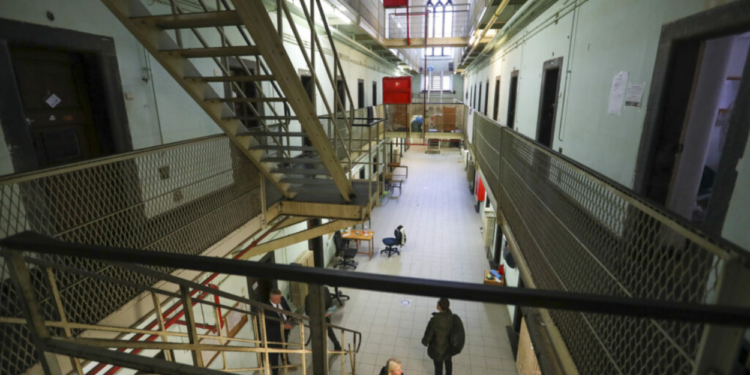Brussels (Brussels Morning) – Belgium’s Federal Parliament authorizes a torture prevention mechanism, enhancing oversight in prisons and detention centres, aligning with international law and human rights standards.
The Federal Parliament has authorised the creation of a torture prevention mechanism to protect the rights of people detained in prisons, detention centres and police stations.
The mechanism will be governed by the Federal Institute for Human Rights (IFDH) in junction with the Central Prison Monitoring Board (CCSP), federal migration centre Myria and ‘Committee P’ (a police body). The action is part of Belgium’s efforts to concede with international law and will allow the IFDH and its counterparts to visit prisoners under federal jurisdiction.
The CCSP, Myria and Committee P will harmonise individual and joint visits to the facilities in question to create reports and recommendations for the appropriate authorities. These visits may be “unannounced”. As the instrument is preventative, it will not examine objections made by detainees. It will rather determine and highlight structural threats of torture, and inhumane or degrading treatment.
Earlier this month, a 41-year-old prisoner from Antwerp Prison was taken to hospital with life-threatening wounds after being abused for days by his cellmates. Despite multiple portrayals of ongoing abuse, chronic staff deficiencies meant that prison workers were unfit to take swift action.
In the wake of the torture, Justice Minister Paul Van Tigchelt (Open VLD) restated that multiple efforts are underway to tackle and ultimately decrease violence in prisons. This includes the design of additional space to reduce overcrowding, engaging more staff and the creation of more “humane detention” via the replacement of dilapidated buildings.
Elsewhere, human rights breaches in Belgium’s detention centres are strongly criticised by the small number of organisations permitted inside the walls. Myria has approved the introduction of independent monitoring bodies for years, cautioning that the system’s impenetrability is a grave cause for worry. In 2021, the body issued a report calling for increased transparency at every level: improved public credentials to documents, clearer instruction to detainees about how to complain, annual statements on torture and abuse allegations, and the installation of an independent monitoring committee that documents to Parliament rather than to a governmental agency.
The innovation of the federal torture prevention mechanism is an essential step for Belgium in ratifying and enforcing the Optional Protocol to the United Nations Convention against Torture and Other Inhuman, Inhuman or Degrading Treatment or Sentence(OPCAT). To date, all EU Member States excluding Belgium and Ireland have ratified the OPCAT. The Belgian State is under fire internationally for thousands of rule of law violations throughout its handling of the blowout crisis. The country has violated international law by failing to greet international protection applicants and protect basic human rights.
The authorization of the federal torture prevention mechanism by the Belgian Federal Parliament marks a significant stride towards safeguarding the rights of detainees in prisons, detention centres, and police stations. Led by the Federal Institute for Human Rights (IFDH) in collaboration with key entities such as the Central Prison Monitoring Board (CCSP), Myria, and ‘Committee P’, this initiative aligns Belgium with international standards while enabling comprehensive visits to assess and address potential threats of torture or inhumane treatment. Despite recent incidents highlighting systemic challenges, including the tragic case in Antwerp Prison, ongoing efforts signal a commitment to reform and enhance accountability within Belgium’s detention system.




